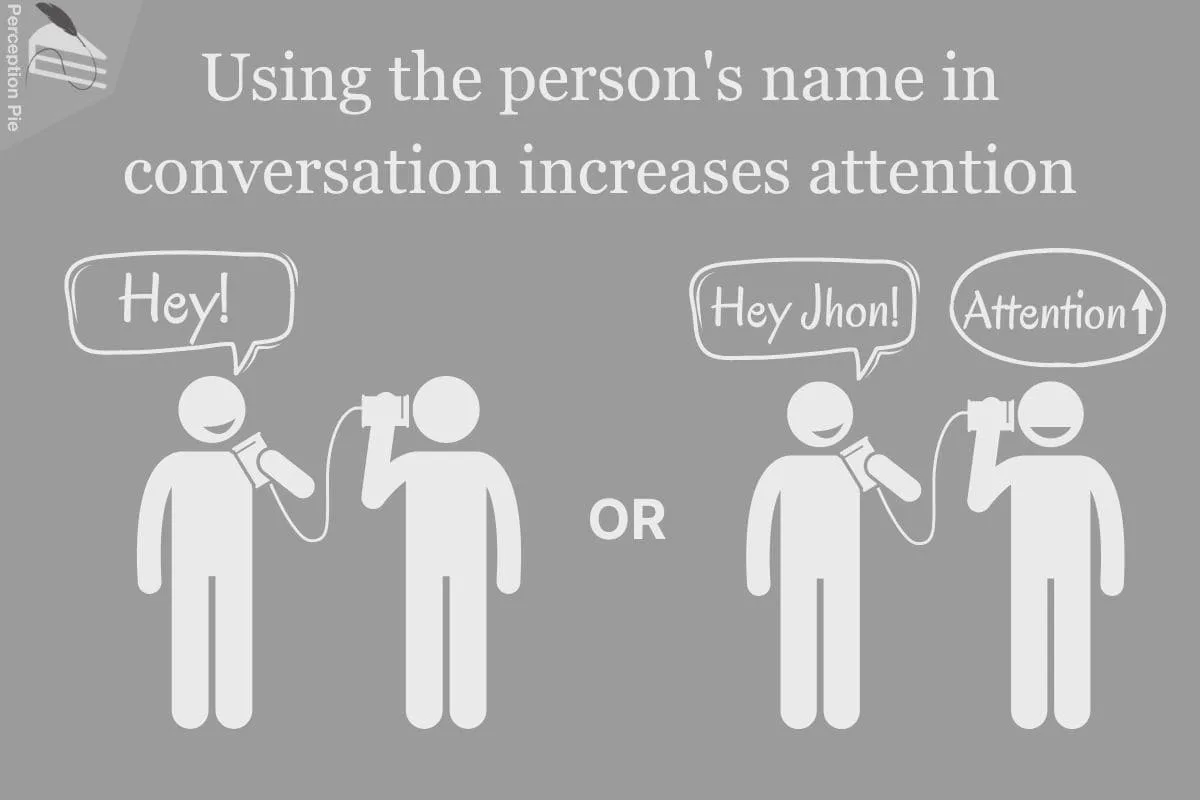
A common piece of advice to succeed personally is to learn how people think, that is, psychology in simple terms. From its name, it sounds like some science for only psychologists, but we have been using it all the time to our advantage.
Understanding concepts like how people think, feel is a great skill that can help anyone irrespective of the situation. Discover some benefits on why psychology matters to start your journey with us.
The article starts with a brief intro on psychology, but jump to Psychology not just for Psychologists if you’re aware of psychology already.
Psychology in Simple Terms
Psychology is the study of the mind. “Study of the mind” is a broad term and includes everything related to mind like how it thinks, feels and behaves in different aspects.
Narrowing these circumstances, psychology is divided into many branches. The psychological practices we use in our daily life mainly relate to the social aspect “Social Psychology” or cognitive (thinking related) aspect “Cognitive Psychology”.
Perception Pie aims to offer content related to these two branches, a brief introduction is given below:
Social Psychology
We think, feel and act differently when we are in people’s presence than being alone. This is what social psychology aims to target: the social circumstance. It means whenever we are discussing psychology related to people or society, it falls under social psychology.
An example of us using social psychology is this article related to dealing with the last piece of food. It talks about how people think and act when dealing with the last piece of food on a shared meal.
Cognitive Psychology
Cognition refers to the process of gaining knowledge through thought, experience, and perception. It includes all aspects of mental functions and processes, such as how we think, solve problems, perceive, judge etc.
Any psychology related with mental processes falls under cognitive psychology. An example of us using cognitive psychology is this article where we talk about different reasons why we hold ourselves back. It also talks about what leads to self-sabotage and resistance to growth backed by an interesting self-realization theory.
Psychology Not Just for Psychologists
“Why Psychology matters when it’s for psychologists?” Whether discussing the circumstances that made a person commit any action or trying to learn about the real YOU, you’re effectively talking about psychology!
This shows that psychology isn’t just limited to psychologists who mainly practice clinical psychology i.e. a branch of psychology that aims to relieve people from psychological-based distress like PTSD (Post-traumatic stress disorder) etc.
We use psychology practices daily, like calling a person’s name during conversation to have their attention, in marketing or public dealings etc. We can further improve these practices by learning about their psychology.

Let’s use a scenario to explain the psychology behind using the person’s name in conversation:
In a family, a healthy boy named Sam is born and loved by his parents. But, from his birth, did you ever think about the one thing he repeatedly hears? His name. When the baby sees everyone calling him “Sam,” he eventually realizes he identifies as Sam.
Now imagine you’re conversing with a grown-up Sam and say the one thing special to him, his name. What do you think will be his reaction? Naturally, you will have his full attention.
This was just an example to show how seemingly simple things can have such depth beneath them.
Psychology and its branches were defined here in simple terms for easier understanding, but for details and further study: Detailed article on Psychology on Wikipedia.
Why Psychology Matters: It Leads to Understanding
Psychology leads you to understand yourself or people which can be considered a “superpower” that can improve many aspects of your life overall. You are probably already using some psychology practices in your daily life, having learnt them from experiences or guides.
But the logic behind them can be truly enlightening and make you understand how people think, act. Following are some benefits, which emphasize why psychology matters:
Being Able to Understand, You Will Begin to:
1. Refresh Your Life With New Perspectives
Looking at things from our view is totally natural, but starting to view life from different perspectives can be enlightening and refresh our life. For easier understanding, lets consider the common perception regarding content creators like YouTube, TikTok: “They make easy money.”
I’ll give two versions of answers to this, and you can choose which one you want to stick with:
- Yes, they make easy money: All they have to do is record a video, do some editing and publish it. It’s not even real work!
- No, they don’t make easy money: They research about topic, write scripts, rehearsal, do multiple takes, video editing, copywriting and then finally publish. After publishing, they have to check the public’s reaction to react accordingly, be wary of copyright strikes or people who’s stealing your content, moderate community and start planning the next video right away because people want frequent content.
Sounds like full time work…this is often why youtubers hire people to lessen the burden, but managing them and getting it all together to finish a complete video is still no easy task.
Now, considering the above circumstances, the next time you watch a video, you might start noticing how much effort the person has put into putting it together, which gives a refreshing perspective on things already seen or experienced.
This was just one example. If you try to look anywhere beneath the surface and try to learn about the psychology behind it, you will answer “why psychology matters” yourself.
2. Learn About Yourself
You might have seen famous figures sometimes taking a hiatus from public life to do “soul-searching.” It feels like an excuse, but it can have a deeper meaning, like they have come to a point where they feel they have gone too far from their “true selves.”
The true self is an identity that defines the real YOU and your nature. From time to time, we have experiences that cause us to judge ourselves negatively, which results in fear that we may be abandoned.
This makes us create a façade identity called “false self” where we try to fit in and become what others want us to be. True self can be confusing but a good way to observe what it looks like is to observe children.
They are curious, playful, and know no limits, which prevent them from experiencing different things. They don’t care about what people say and just do their own thing—that is, until they grow up.
The positive and negative experiences from childhood to adulthood create our personality, nature, and ego, which slowly form the false self to hide our true self. This either makes us do some soul-searching at some point in our lives or continue to suffer mentally without self-realization.
You might want to read about the “Inner Saboteur,” which influences our thoughts and tries to maintain the false self and protect us from “discomfort and pain” by discouraging new experiences.
This section was written with observations and researching psychologist Maria Rippo’s study which is written about in study’s section of above linked article.
3. Control Emotions
Understanding circumstances puts a leash on a potential outburst of emotions such as anger, etc. I invite you to recall moments in your life when you were angry at someone but, after learning their story, you felt bad and sorry. Such is the power of understanding. There’s an excellent quote that sums this up:
Anger begins with madness and ends with regret.
Imam Ali (AS)
Psychology matters, as understanding it helps us control our emotions better and brings our sanity back.
4. Improve Stress Management
Mental Health America defines stress as a feeling of emotional strain and pressure and it’s known as a psychological pain. We feel it when we believe we have little control over the situation or something unexpected happens.
Understanding yourself, how you work, and how you solve problems can help you manage your stress better. Rather than creating stress from excessively worrying about things you can’t control, you may try to focus on what you CAN do, resulting in improved stress management.
5. Improve Professional Career
Whether you’re working for someone else or running your own business, psychology can improve your professional career. If you’re a businessman, you’re either offering a product or service; being able to understand what the customer needs and try to fulfil it is one of the main factors leading to a successful business.
In a business, you might have employees working for you, and trying to understand and fulfil their valid needs creates a better workplace for all, leading to increased productivity. You might even get some ideas from them that aim to cover any market gaps that you may have missed.
For a person working for someone, you need to understand that businesses are built to make money, and you are hired to help them accomplish this and keep doing so for recognition and promotion.
If you are fulfilling your purpose and the revenue is ramping up due to your efforts, you’re on the path to an imminent promotion, provided that the company values productivity of its employees.
So, to improve your career, you need to aim to understand what the company wants from you and make them realize your worth as an irreplaceable asset by helping them make money.
6. Improve Relationships
Every person thinks and acts differently, and understanding them can help you manage existing relationships and build new ones. You might be able to notice relationships that bring you harm secretly and manage them accordingly. Understanding others also increases tolerance, which helps create and manage new and existing relationships.
7. Notice Psychological Tricks
“We live our lives through our emotions,” as quoted by Robert Solomon, emphasises the importance of emotions. People and corporations try to entice you to buy their products or services by using emotional triggers.
A good example is limited-time offers. Displaying products as limited-time offers in an attempt to persuade you that if you miss this opportunity, you will regret it forever.
Similarly, scammers try to use psychological tricks to scam by coming as “well-wishers” to gain trust and then finally doing the deed. When you start learning about psychology, you will begin to notice the hidden red flags.
Conclusion
This piece attempted to explain why psychology matters with some possible benefits from beginning to understand people. It also affirmed that psychology isn’t just limited to psychologists but also to the general public who use psychology practices in their daily life without realizing it.
Did you manage to get an answer to “Why Psychology matters?” Did you gain any new perspectives after reading this piece? Comment below and let us know!
If you enjoyed this post, you may like our other posts in the blog section.
